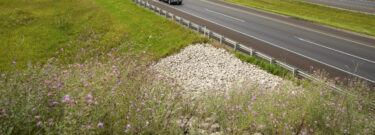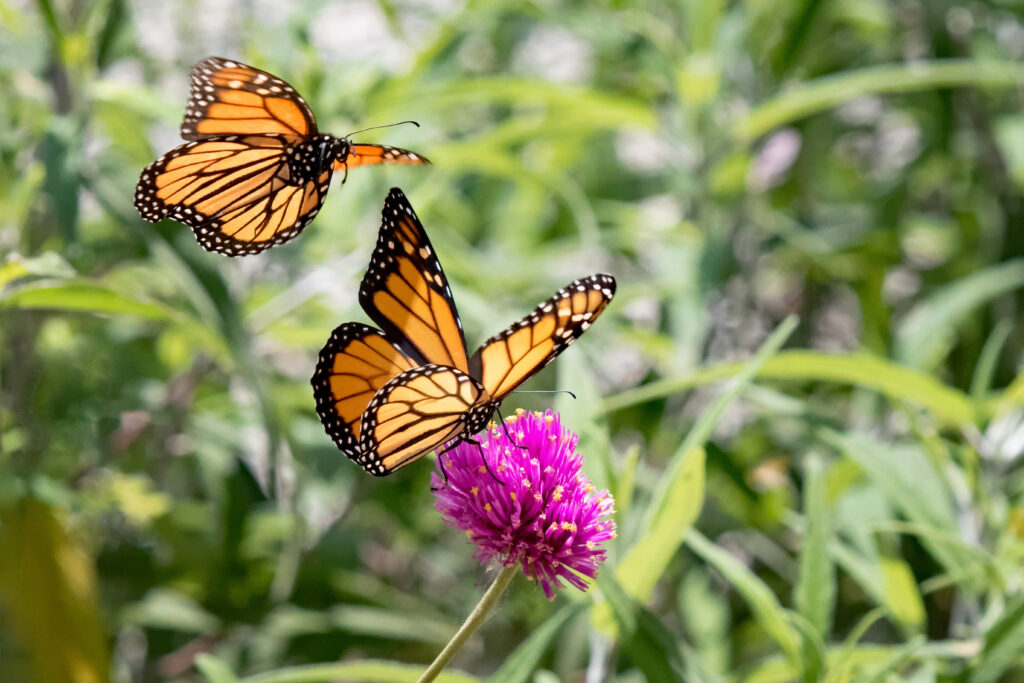Rethinking our landscape with
Project Michoacán

After assessing opportunities to enhance our ecosystem along the Toll Road, Project Michoacán is blossoming as an ongoing upgrade to biodiversity.
Every year, the migratory monarch butterflies embark on a 2,500-mile trek between the United States and their breeding grounds in western Mexico. To support and sustain their journeys, ITRCC launched a project to reseed dozens of acres of Toll Road land. After an initial pilot project in 2017, ITRCC completed the process of removing non-native turfgrasses and began planting a diverse range of native perennial plants.
As our prairie environment takes root, it will contribute to a healthier overall ecosystem, with many more flowers available and accessible for pollinators. Plants like goldenrod and coneflower provide a veritable smorgasbord of pollen, nectar, and plant matter. And the growth of milkweed will play an essential role along the monarchs’ migratory route. Monarch caterpillars feed exclusively on the leaves of milkweed plants; however, the natural spread of these native flowering perennials is unable to keep up with the need for their growth. Harvesting their seeds can be a laborious and expensive process.

Nonprofits like land trusts and public park systems in northern Indiana, and elsewhere, often struggle to stretch their budgets to purchase the seeds needed to achieve their own stewardship goals. To help, ITRCC is also creating new uses for our own land. Because the Indiana Toll Road corridor is known as a rich environment with natural milkweed growth, we partnered to identify “harvest sites” on our property that can be safely accessed during ideal harvesting times and welcomed several ITRCC team members who volunteered their time to pick, sort, and clean native milkweed seeds.
These steps are only a start in a broader effort to rethink and improve our landscapes.





